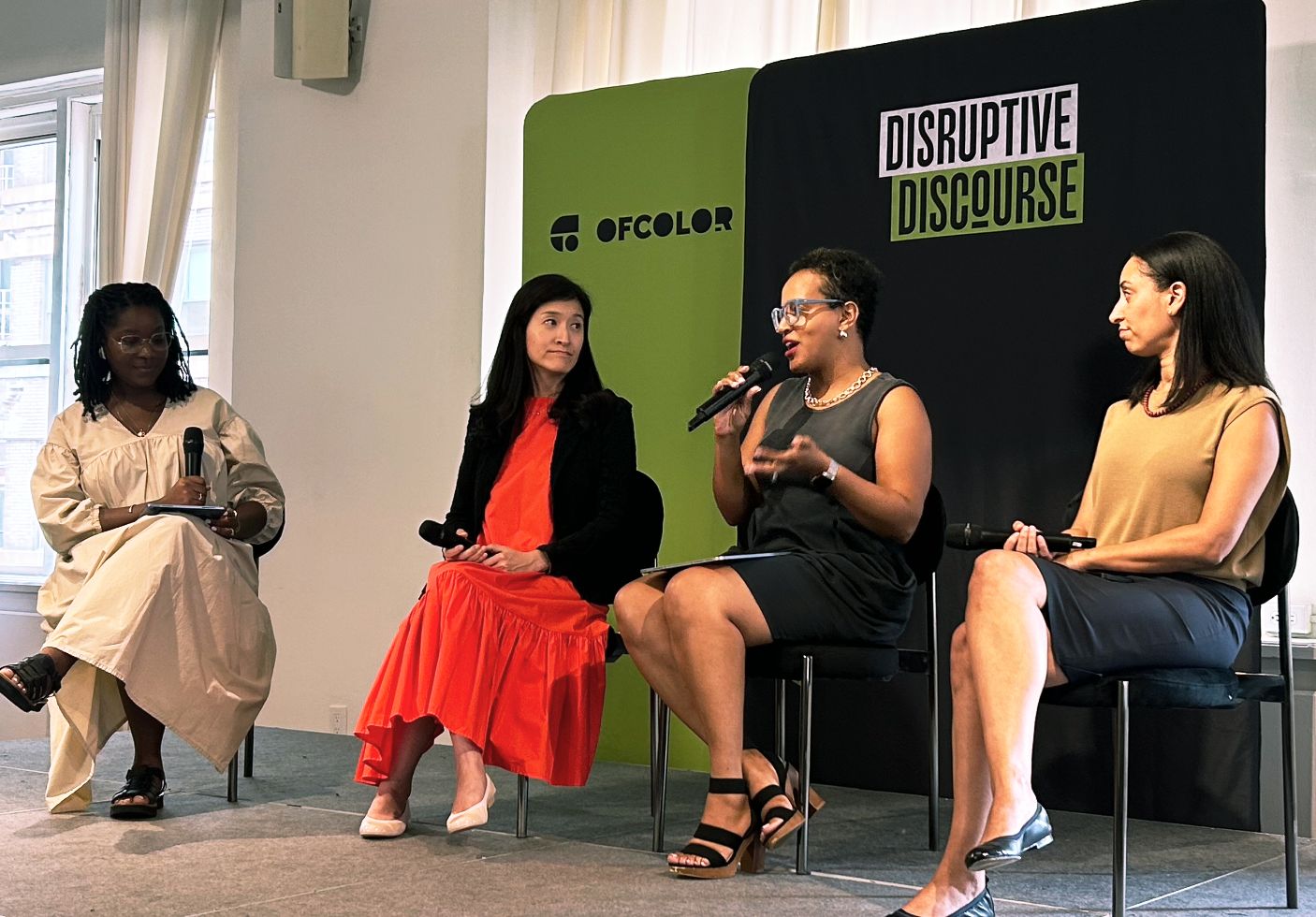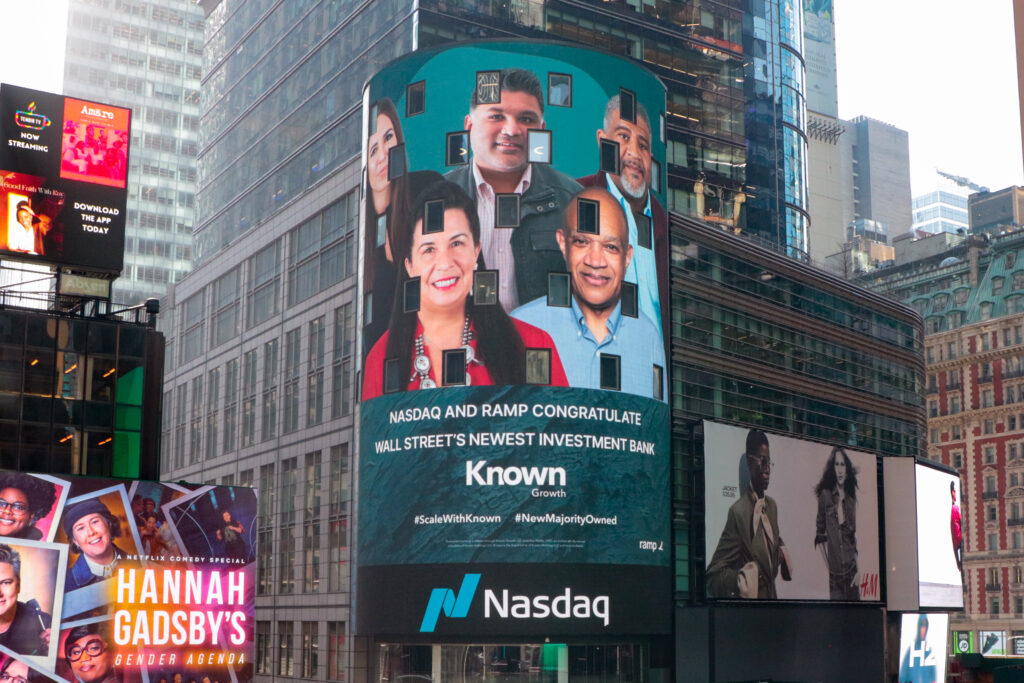ImpactAlpha, September 14 — Women leaders of color are stepping up ecosystem-building efforts to counter the recent legal attacks against minority-owned and led funds and small businesses that are crucial to driving the inclusive economy for low-income and underserved workers of color.
“We absolutely must be doing something right,” JaNay Queen Nazaire of Blk Grvty said at this week’s Disruptive Discourse, a half-day summit in New York organized by OfColor, a Black-owned financial wellness startup for workers of color. “Part of what’s happening right now is that people are scrambling out of scarcity, fear, power and control.”
Attracting the most attention is the lawsuit against Atlanta-based Fearless Fund, which provides capital for early stage businesses run by Black women. Fearless Fund faces a lawsuit by the American Alliance for Equal Rights alleging anti-white bias. Behind the lawsuit is Edward Blum, the conservative activist who crafted the legal strategy that led to the U.S. Supreme Court June decision barring affirmative action in college admissions.
Progress has been chipped away on other fronts as well. Small-business owners of color must now write an essay to prove that their race is a “social disadvantage” to qualify for certain programs under the U.S. Small Business Administration. A federal judge in July struck down a provision that was designed to improve access to government contracting dollars to historically-disadvantaged groups.
“That’s a challenge we’re all gonna have to get through together,” Prudential’s Sarah Keh said on the same panel. “It’s because of the systemic discrimination and policies that have happened that minority-owned businesses are disadvantaged right now.”
Keh leads several community-based efforts to support local underserved and minority small businesses in Newark, New Jersey, where the insurance company is headquartered. She anticipates “more legal challenges will come down the pike.”
“We remain 100% committed,” Keh said. “We have commitments that we’ve made towards minority spending, both on the procurement side but also around small business support.”
OfColor aims to improve the financial health of employees of color by helping them keep more of what they earn and build a lasting financial legacy. OfColor’s half-day summit convened other leaders including Les Williams of Sunny Day Fund, which partners with employers to create emerging savings programs for low-income, minority and women workers; Liz Davidson of LA-based firm Financial Finesse, invests in and offers financial coaching solutions to workers in the US. Financial Finesse, through its venture capital arm, backed OfColor in July this year to work with large enterprises on improving the financial health of their employees of color.
“We have a deep understanding of these issues, as most of our team has faced and overcome them at some point,” says Yemi Rose, who founded the company in 2019.
Blk Grvty earlier in June inked a partnership with Known Holdings to launch an innovation lab that will explore capital models and provide grants to support Black and Brown fund managers.
“I stand in solidarity with the Fearless Fund and others,” Nazaire said.
Worker Ownership
Black, Hispanic and other workers of color in the US make up nearly half of the working class, according to the Center for American Progress. Exacerbated by the COVID-19 pandemic, workers of color are facing disproportionately higher rates of debt and other financial hardships compared to white peers.
One promising path to wealth creation: worker ownership.
Two-dozen private equity firms led by KKR combined efforts with financial institutions and foundations, including Ford and Rockefeller, to launch Ownership Works two years ago. The nonprofit’s goal is to create $20 billion in wealth for low- and moderate income workers, including workers of color, over the next decade through broad-based employee ownership programs.
“It’s been an entire ecosystem of stakeholders across the private, public and nonprofit sectors coming together to try to come up with solutions,” says Anna-Lisa Miller, who leads Ownership Works. Ownership Works has implemented broad-based ownership programs at 79 portfolio companies with over 100,000 workers.
“We’ve shared almost $25 million with Black workers in particular, and the average payout to those workers from these employee-ownership programs has been about $46,000,” Millers shares during a discussion.
While payouts can provide financial relief for workers, helping them pay down debt or pay for their children’s education, receiving a large sum could bring complexities. She said workers need to make plans of what to do to maximize the long-term benefit of the payouts.
“$46,000 can be a tremendous amount of money for an employee,” Miller says. “But it’s not instant generational wealth.”











